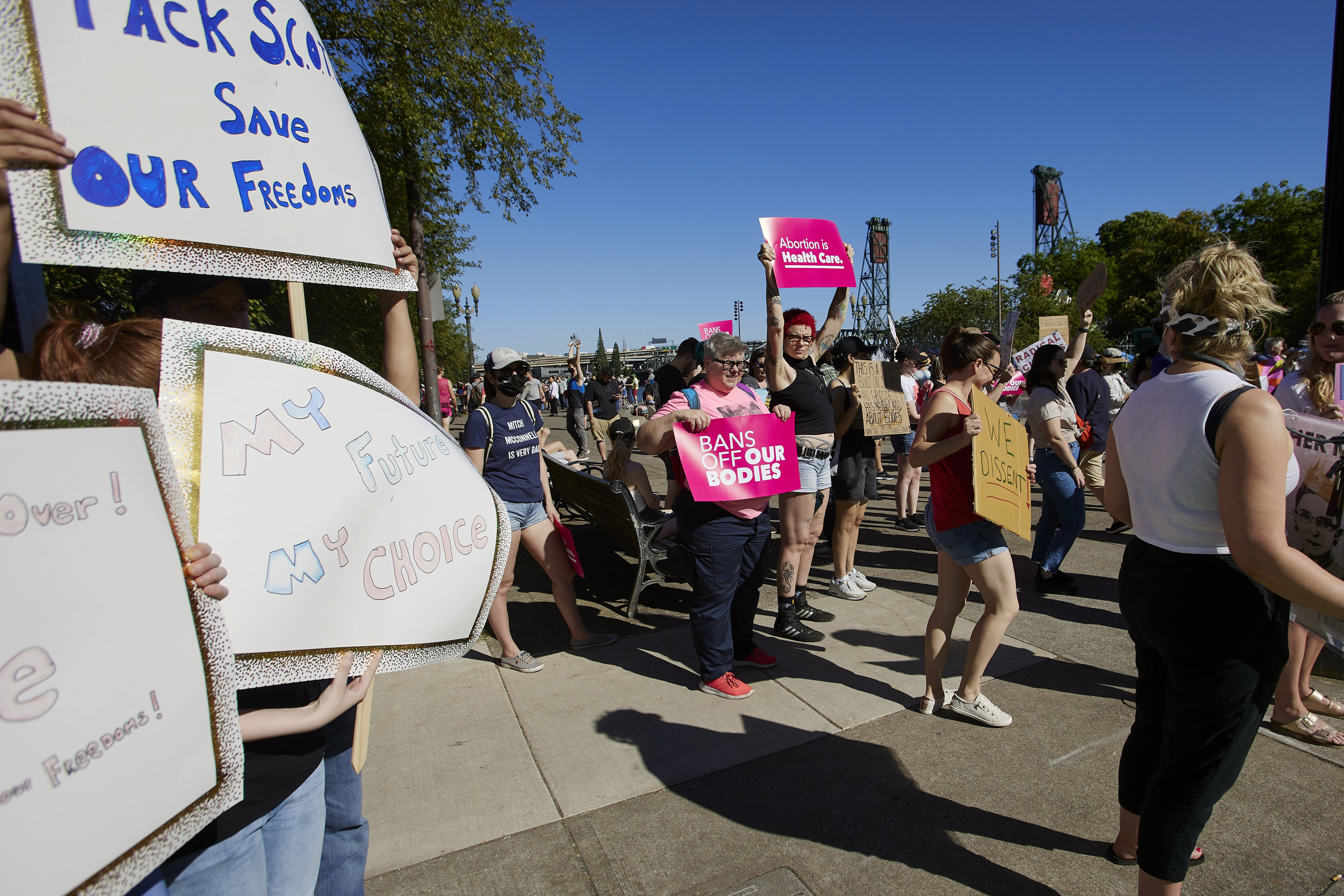As California pushes for accessible abortions after the overturn of Roe V. Wade, the University of California (UC) and California State University (CSU) will be providing abortion pills on all campuses starting Jan. 1.
Senate Bill 24. allowing for UC and Cal State campuses to have RU 486 abortion medication on site was authored by state Sen. Connie Leyva, D-Chino, in 2019.
RU 486 also known as mifepristone is an FDA approved method of medication abortion. Patients will receive RU 846 to take by mouth. Twenty four to 48 hours later patients will take a second medication and after two weeks patients will need a checkup. Mifepristone causes the lining of the uterus to shed causing pregnancy to terminate because eggs will have nothing to stay attached to.
There is currently no Cal State school that is offering medication abortions. Access within the UC system varies from campus to campus. Both public California universities are on track to implement the law passed in 2019 making it a requirement for health student centers to provide access to the abortion pill.
We're making it easier for you to find stories that matter with our new newsletter — The 4Front. Sign up here and get news that is important for you to your inbox.
Each month, an estimated 322 and 519 students at Cal States and UC seek medication abortion, according to a report by a UC San Francisco program called Advancing New Standards in Reproductive Health.
Allowing an accessible pill on college campuses can be a relief for students and surrounding clinics, allowing for more spots to be open for those seeking abortions living in restricted states after the Supreme Court's ruling on Roe v. Wade.
"It will help students feel more comfortable about getting the help they need and know that their university does have their best interest at heart. Even if our own government doesn't," said Hanna Pierini, a fourth year student at Cal State Long Beach.
An estimated 6,228 students will seek medication abortion on UC and CSU campuses each year once it becomes available, according to the reproductive health report.
The access to the medicine will differ between UC and Cal State schools.
The University of California Student Health Insurance Plan, which is required for students, will cover the costs for UC students. Students attending Cal States and those who waived the insurance requirement at UC will have to pay. The estimated cost of medication is $60- $80 and varies between campuses.
To reach the Jan. 1 deadline, previous campuses with no access to medication abortion will have to train providers and update information on websites to inform students this service available on campus.
Essential Access Health is offering Zoom training for UC and Cal State campus providers to help review the new law, how to administer medication abortion and how to support student patients after they terminate their pregnancies.
Funding will not be paid by the taxpayers for the first year, it will be funded by The Women's Foundation of California which secured $20 million from advocacy groups and anonymous donors.
Planned Parenthood Generation Action chapter at San Jose State, led by Ranjana Iyer and Elizabeth Bernadino, is welcoming the abortion pill on campus and support students who want to learn about safe sex.
"It's such a stigmatized topic. It's very divisive but I think for students who are low income, people of color, minorities, I think it's a resource that should be there," said Iyer.
Many anti-abortion groups, including California Family Council oppose the requirement.
"You don't have to be pro-life to recognize SB 24 is bad for colleges and dangerous for students," said Jonathan Keller, president of California Family Council in a statement.
Not every college campus is created equally, and access to abortions vary. UC Davis is 11 miles from a facility while San Diego State is a mile away to the nearest facility.
"If unexpected pregnancies occur, following through with it because of the lack of abortion accessibility could cause one to drop out to take care of their child," said Jessica Gonzalez, a third year student at UC Davis. "With this option, students can remain in school, and they can feel more safe and secure knowing there's always support from the student health center when needed."



